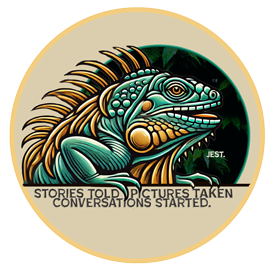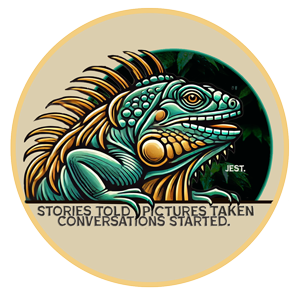First Published BuffaloVibe • May 10th, 2017
There are many different types of mothers — grand, great-grand, birth, original, first, second, adoptive, step, single, divorced, God, fairy-god, nature, biological, in-law, lesbian, @#$%@, earth, deceased, stay-at-home, working, like a — mother. And, don’t forget those gay fathers who are father-mothers or any of those beloved mother figures. Motherhood is at once primally pervasive and wholly unique. But, we give it merely a day to celebrate it; Mother’s Day can sometimes feel like a reduction of motherhood to brunch and flowers.
We try to categorize mothers with an ever burgeoning flow of adjectives – surrogate, queer, baby – mama. And for all that typecasting, each of us holds one unique, highly individualized concept of motherhood. Whether the story of your origin was grand, like every other one on the block, or tragic, it’s primarily a story about how you came to be through your mom.
This story is foundational to our development but we have no agency in its creation. We don’t even remember it happening to us. We are as dependant on other people’s recollections and willingness to tell us as are babies for their food supply.
When my husband and I decided to try to adopt a baby, we took a series of homestudy classes with others interested in adoption. The facilitators asked participants to share their own personal birth stories. Most of us have a bouquet of anecdotes and episodes about our mothers and how we came to be. Our origin stories came quickly to mind and were shared with humor and delight – moms and dads racing to the hospital and families coming to greet their own. We enjoyed lots of documentation, from birth certificates to carefully crafted scrapbooks, and photo albums depicting our cozy, happy, and brightly colored infancies.
Whatever complications and difficulties that may ensue, the initial vision of mother is set in an origin story. She is the foundation for all of what will come. And she will be used to compare, contrast, and judge every other mother, including ourselves.
But what happens when one is purposefully and legally shut out of their own origin story? What if one is not allowed to know anything about his/her birth mother? What if you were unable to answer these questions: where were you born? Who was with your mother at the hospital? Who named you? Where did she live? Who took you home?
We want our story to be a grand bouquet of colorful anecdotes and episodes, but for those who have been denied access to their own stories, even a glimpse or a sliver of evidence means the world. Prior to the 1980s, most adoptions were closed. This means that no contact between the adopting and the birth parents was permitted. Birth certificates were changed (as they still are) and the adoptive parents are listed as though the child had been born to them. This was called a “legal rebirth” and it happened to infants as well as to those in foster care. Adoptees have pleaded with the courts to have their original birth records restored.
One of my personal origin stories is about one of my mother’s co-workers who was pregnant at the same time as she was. This co-worker had moved to Buffalo to hide her pregnancy from her friends and family in her hometown.
She told no one the story of her relationship with the baby’s father or her personal circumstances. They worked together as young nurses at Sister’s Hospital. My mother described her co-worker as being “on mute.” She did her job. She hardly spoke. She delivered her baby girl around the same time as my mother delivered me and placed her baby for adoption. As was the custom then, the adoption was closed. Fast forward a few weeks. They were both at a party at a mutual friend’s home. My mother left me asleep on a bed. When she came in to check on me, her co-worker was sitting on the bed watching me sleep. She asked if she could hold me. With tears running down her face and her eyes full of grief, she picked me up, cuddled, and rocked me.
Back then, adoption happened in a set and prescribed way, regardless of personal needs or feelings. My mom’s co-worker may or may not have been allowed to hold her baby for even a few minutes before she was whisked away. This mother is part of my origin story and yet she may not be part of her own daughter’s. I know how much she loved her daughter. Her daughter should have that knowledge as well.
Here is another origin story. It is of an open adoption, my son’s. He has two mothers: one came into the hospital with him and the other left with him; one brought him into this world and one brought him home; one connects him to his ancestors, history, race, and biology and one provides, educates, and parents him; one is like him and one sees to who he is becoming; one gave him his nature and one nurtures him. Yes, for most people, one mother does all this. But as far as I can tell, motherhood was never supposed to be a solo project. People are born into families. With two mothers, he gets lots of family.
In adoption circles, many families have asked that we refrain from using the term “birth mother” and use “first mother” and/or “original mother” instead. The impact of first mothers on the lives of their children far exceeds birth.
None of us can change the circumstances of our origins nor the mother(s) who received us, but we do get to decide what we do with the story. Do we deepen it with more understanding and knowledge? Do we set it aside and walk into our future? Do we devote our lives to the mission of motherhood – to create, nurture, protect, and serve? Do we become a different kind of mother – earth, nature, or fairy-god? Whatever you decide to do with your story, you need to know it first.
Finally, I have a mother’s day gift idea that goes beyond brunches and bunches of flowers: Tell offspring (because we are all offspring) about their mother and their original story; Learn moreabout the challenges adoptees face to in retrieving their original birth records; Deepen the understanding of all different types of mothers; Offer the gift of story.

More Writing by Lesa Quale Ferguson
about author

Writer + Picture Taker ^ Image-Maker & Design Web-ber #Ma
I don't have a newsletter YET!
I will be inspired to write one if I get enough email addresses.



